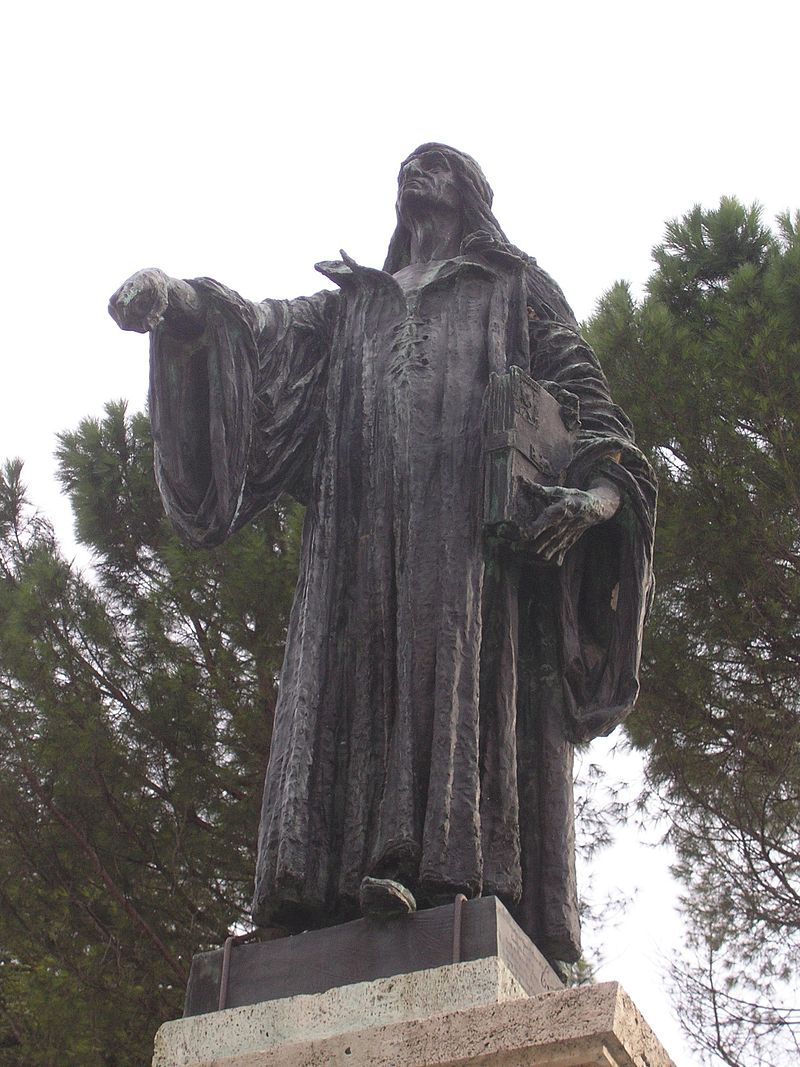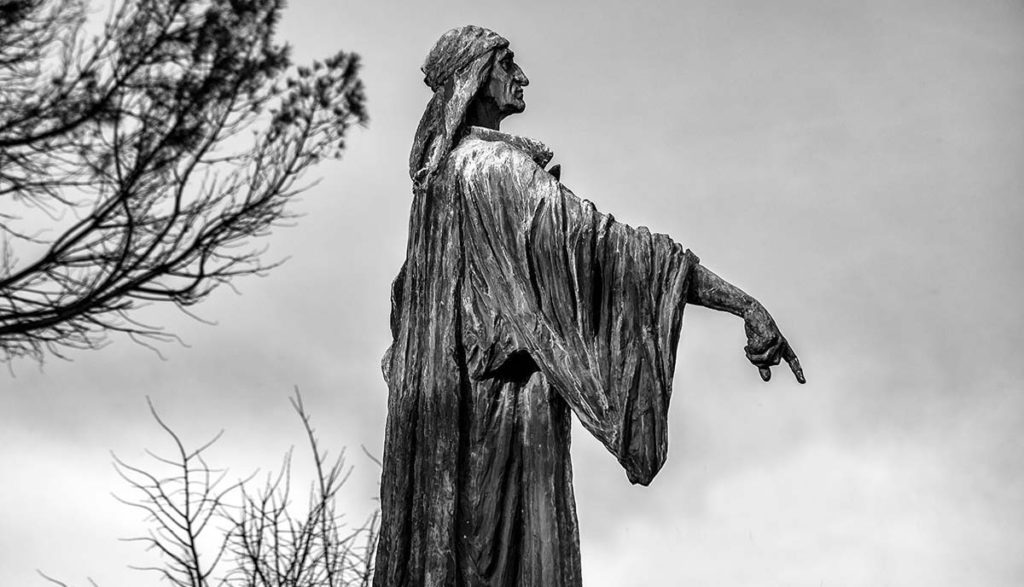I don't believe that Cecco D'Ascoli is a second-rate character, I believe that he was put aside at the behest of the Church, given that he professed a discipline that has always been suspect for men of the Christian faith, or in any case kept very closely under control.
Born in the fourteenth century in Ancarano, a town under the jurisdiction of Ascoli Piceno, Cecco D'Ascoli has always been interested in stars, he studied with the monks of Ascoli, in the Monastery of Santa Croce, where he was inspired by the doctrine of the Templars, then he went to Florence and Naples, finally he teaches astronomy at the medical faculty of Bologna, and is so admired by students and colleagues that when the religious political power tries to have him removed and fined him with a large fine, there is a sort of uprising on the part of the university to the point that they are forced to readmit him to the chair complete with apologies and promotion. Cecco's life must not have been easy, given the times we were living in, but let's say that he also courageously went looking for it: he continued to assert that everything that happens in life can be attributed to an astral determination. One wonders if he was able to read his fate, or if he somehow knew enough to defy it. We are in the rigid and fanatical Middle Ages and Cecco speaks of nature and knowledge, of an alter Deus with a Gnostic flavour, of an angel fallen from heaven who almost resembles the demiurge of Sofia and the archons, partly referring to a Christian Hellenism dear to patrology Greek of the XNUMXst and XNUMXnd centuries AD, where cosmology was studied in the footsteps of Qumran and doctrines of oriental origin. Too far ahead perhaps. Had he been born a century later, he would have associated himself with Marsilio Ficino and Pico della Mirandola and with the whole host of Greek scholars carried forward by Cardinal Bessarione and Gemisto Pletone who opened the Renaissance. Too early, as Giordano Bruno arrived too late.
 Cecco D'Ascoli, in short, was looking for formulas capable of bending the devil through the study of the stars, zoology and botany, that is, through science and knowledge, and for this very reason he was placed under permanent observation by the Church always on the hunt of heretics to be condemned and put on the spit. A political guard, in short, as there have always been over the centuries, especially when one is averse to the power of the time.
Cecco D'Ascoli, in short, was looking for formulas capable of bending the devil through the study of the stars, zoology and botany, that is, through science and knowledge, and for this very reason he was placed under permanent observation by the Church always on the hunt of heretics to be condemned and put on the spit. A political guard, in short, as there have always been over the centuries, especially when one is averse to the power of the time.
After Bologna he returned to Florence, where he became court doctor to King Robert of Anjou's son, Charles, Duke of Calabria. Unfortunately this assignment did not last long: a conspiracy hatched by three men who were hostile to him and probably envious of his position, managed to frame him, resulting in him being sentenced to the stake. While he was being burned alive in front of the Basilica of Santa Croce he apparently shouted: “I said it, I taught it, I believe it! ” .
As a forerunner, precisely, as a man extremely convinced of the superiority of nature compared to its bending to the will (or ego) of man, he even argues with Dante and his Divine Comedy which he judges to be profoundly unscientific. In his best-known text, l Unripe , ( Unripe age, immature life) he ranges across many fields of knowledge: from astronomy to the natural sciences, from mineralogy to medicine and zoology, as well as deeply ethical philosophical concepts. Very fond of his Marche despite his past away from his land, he composed these famous and nostalgic verses:
O beautiful country with sweet hills / why didn't you know it, o immature people / with various, envious and crazy acts?
I also cry for you, my sweet country/ because I don't know that the world preserves you/ and against God by committing so many offenses.
In Ascoli Piceno there is a statue dedicated to him, created in 1919 by the Florentine sculptor Edoardo Camilli, commissioned by Ascoli people who emigrated to America
There is also a foundation in his name, founded in 1987, which is very culturally active. A feature film dedicated to him was also made in 2004: The heretic, protagonists the talented Remo Girone and Tobias Moretti.

